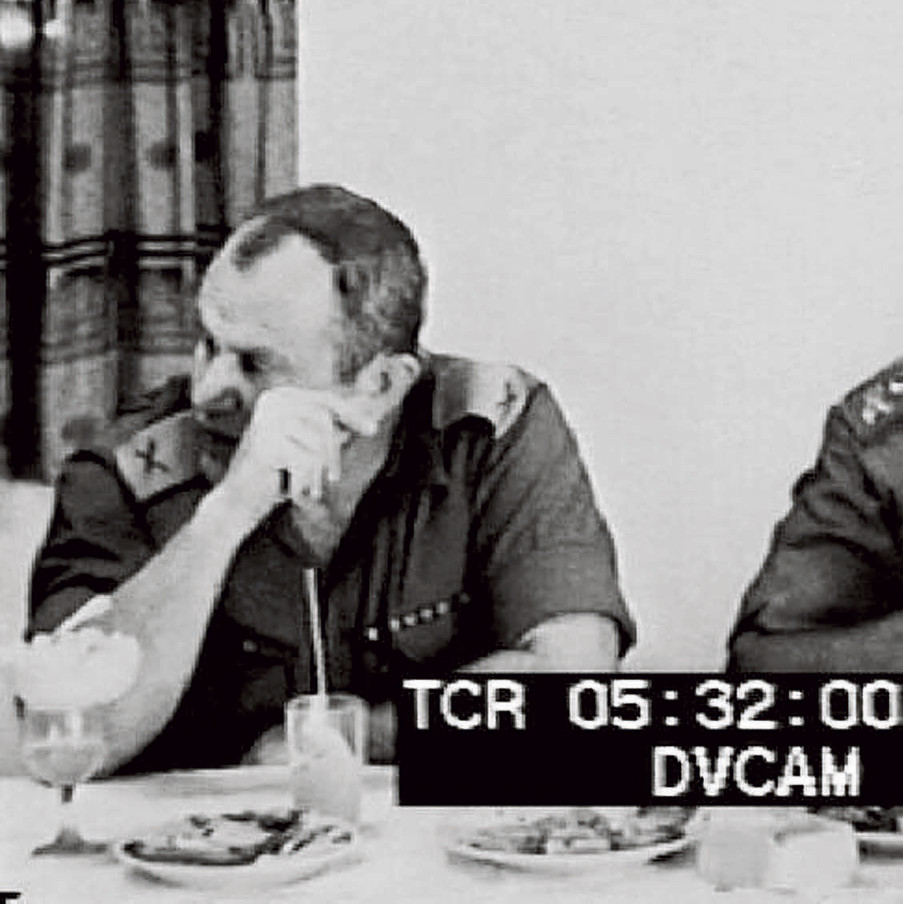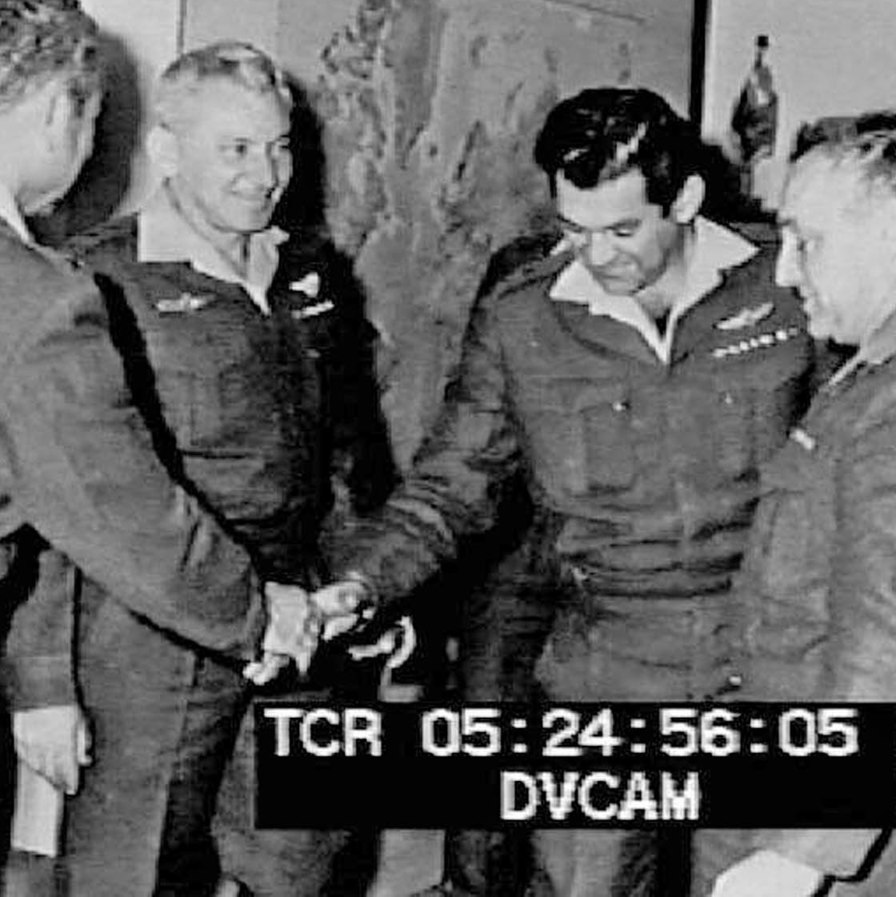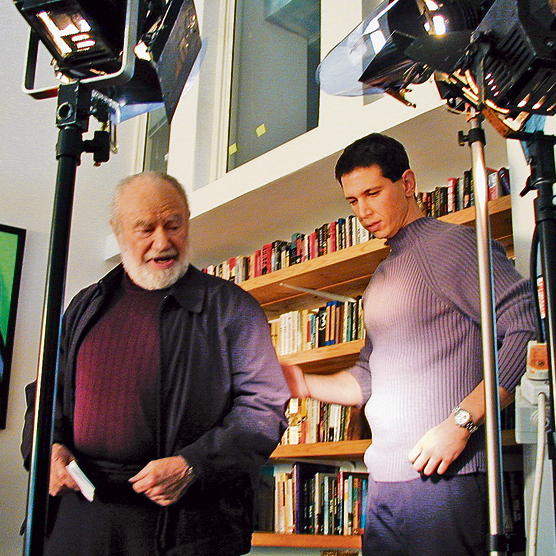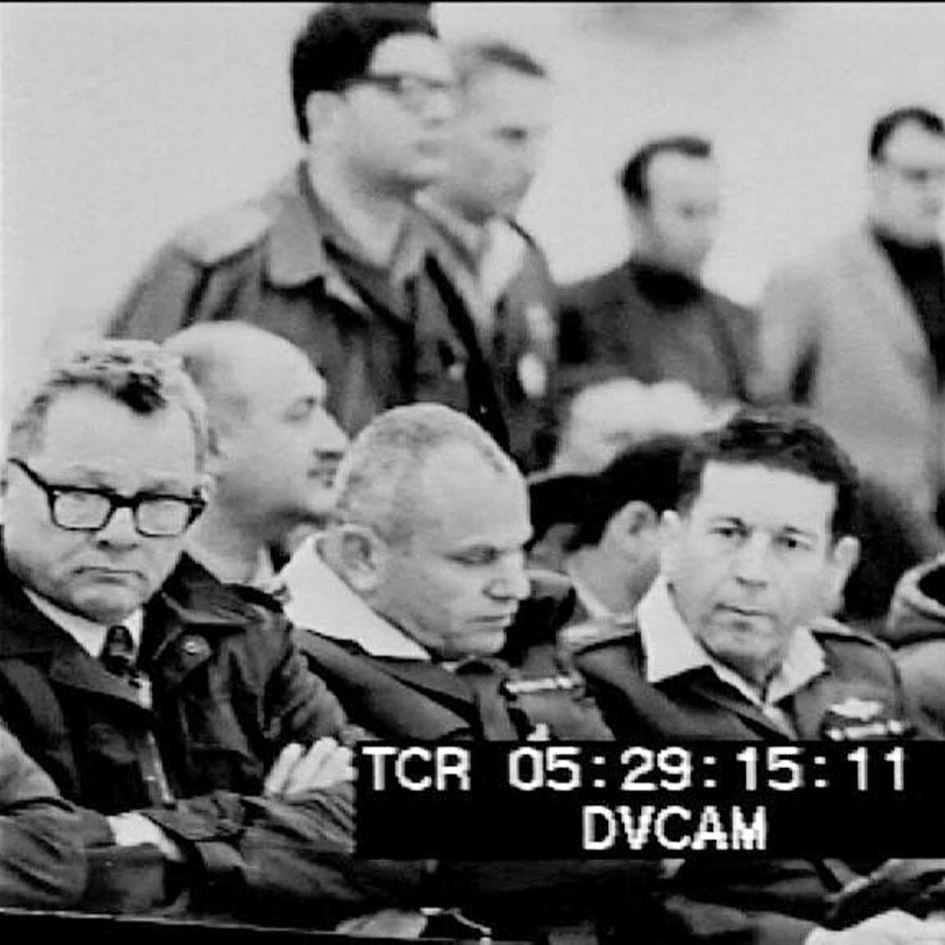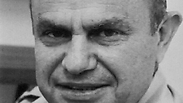
IDF general talks about Israel's scrapped plan to use nuclear weapon in 1967
New details emerge about a last-resort contingency plan prepared by Brig. Gen. Yitzhak Yaakov to detonate a nuclear device in the middle of the Sinai desert as a warning to Egyptian President Nasser; 'The goal was to plant a nuclear device on a hilltop in the Abu-Ageila area, and to blow it up when the prime minister gives the order to do so,' Yaakov says in series of interviews that were banned for publication by Israeli Military Censorship, but excerpts of which have been made public by a US think tank.
"At the end of the war games, Israel used a nuclear weapon against Egypt, as a response to Egyptian surface-to-surface missiles that hit Tel Aviv," Yaakov said.
"All of the other participants, who knew what I do for a living, had puzzled expressions on their faces. I told them Israel doesn't have nuclear weapons and that this whole scenario was completely imaginary, a wild fantasy," Yaakov continued.
But such a scenario was not entirely farfetched. As tensions mounted in the run-up to the 1967 Six-Day War, Yaakov was asked to return to Israel from the US posthaste and prepare a last-resort contingency plan for Israel to detonate a nuclear device in the Sinai Peninsula as a warning to Egyptian President Gamal Abdel Nasser to end hostilities against Israel in the event it found itself losing the war.
Brig. Gen. Yaakov revealed the details of that contingency plan, codenamed Operation Samson, in a series of interviews between 1999 and 2001 with Dr. Ronen Bergman and nuclear policy researcher Dr. Avner Cohen.
The IDF censor barred the publication of the interview in Yedioth Ahronoth in 2001, but on Saturday the New York Times published excerpts from the interviews, while additional transcripts have been made public by the Woodrow Wilson Center for Scholars on Sunday as part of the think tank's Nuclear Proliferation International History Project.
Over the course of these interviews, Brig. Gen. Yaakov admitted that before 1967 "nobody thought that we were close to using" the nuclear device that was being developed in Dimona and the idea to detonate the device in the Sinai Peninsula was "spontaneous rather than planned."
"I don’t think that we thought that we are ready to start working on a bomb. There was even no fuse... I don’t think that anyone thought in terms of 'we might need it anytime soon,'" he said.
Nevertheless, the use of unconventional weapons was not entirely alien to the IDF. "We prepared multi-year plans which also encompassed unconventional weapons. We presented those plans in General Staff discussions at least once a year, and there were discussions on these issues," Yaakov said. "There were those who thought we were wasting money... The discussions were very substantive."
According to Brig. Gen. Yaakov, the scenario was even drilled. "I may be wrong (about the exact date) because it may not have been before 1967… (but) at a certain point we did a command and control exercise... in which we went over the entire process, from the moment of issuing the order to its implementation. It took about two hours... It was a telephone exercise," he recounted.
Still, he said, "We didn't think about it in operational terms at all, since we all understood it was a kind of a 'doomsday weapon'… You won’t have a conventional war after using such a weapon."
The idea to use a nuclear device on a mountain in the Sinai desert was born when he returned from Washington, during discussions on how to defend against the danger of Nasser using chemical or biological weapons on Israel.
"I came back to Israel (from Washington), (General) Ezer (Weizman) was busy in the 'pit' (IDF High Command center) with the IAF, and the person who received me was Gandi (Maj. Gen. Rehavam Ze'evi), who was in a terrible mood and thought that the State of Israel is in very big trouble. He told me, 'prepare everything you've got,'" Yaakov remembered. "The idea came up of using a nuclear device."
To get a plan in motion, Ze'evi and Yaakov wrote an operational order and took it to IDF Chief of Staff Yitzhak Rabin for approval.
Rabin, who at the time was in hot water with the Eshkol government, went to David Ben-Gurion for support, but Ben-Gurion held Rabin responsible for the impending war, believing Nasser did not want this escalation. This broke Rabin's spirit.
"He was not very healthy. You could see it on him. He sat alone in his room downstairs... We talked and I wasn't sure whether he was focusing on what we were saying. We gave him the order and he signed," Yaakov said.
Shortly thereafter, Rabin had a mental breakdown, left the IDF and did not return to command during the Six-Day War.
Waiting for the order
The daring plan was to include, according to Brig. Gen. Yaakov, cooperation between the elite Sayeret Matkal Special Forces unit, the defense technology company Rafael, and the Dimona nuclear reactor.
"The goal was to plant a device on a hilltop in the Abu-Ageila area, and to blow it up when the prime minister gives the order to do so," Yaakov said.
The nuclear device, which was codenamed Spider, was to be transported to Sinai by a Sayeret Matkal platoon using two Super-Frelons helicopters.
"The plan was to land on some mountain near Abu-Ageila... and on the side there (would be) a paratroopers’ diversion attack. (While) the Egyptians (would run) towards the paratroopers, we (would be) working on this mountain. And we would have a whole night to work, to assemble, and we would wait for our order," he recounted.
Yaakov was worried about what might happen when the device detonated. "I didn't know what it would mean for me to lay on a mountain, 1.5 kilometers from a nuclear bomb. What happens? Am I going to burn immediately? Will I be thrown in the air? All sorts of things of this nature... That was in addition to (the fact) that in effectm we were the first ones—in a tactical war, a war in the Middle East—to use nuclear weapons," he said.
According to Brig. Gen. Yaakov, the order to detonate the nuclear device was only meant to be given if Israel faced the existential threat of losing the war.
"We talked about a red line (for Egyptian missiles to hit) around Ashdod (a city in southern Israel) or something like that... We left it for the judgment of the prime minister to decide," he said.
Executing such a plan, he stressed, was truly seen as a last resort. "There were no questions about saving our troops, no questions about retreat, no questions about how to get out of there. We all understood... we do it only when there would be no other alternative," Yaakov explained.
"The goal was to create a new situation on the ground, a situation which would force the great powers to intervene, or a situation which would force the Egyptians to stop and say, 'wait, a minute, we didn’t prepare for that,'" he added, noting that a mushroom cloud over Sinai would send a message, "The whole world will know about it. The world isn't going to be the same."
But the order to use this doomsday weapon never came. The IDF launched a surprise attack against the Arab nations on June 5, 1967, and the war ended six days later.
"About six hours after the war broke out, we were on high alert," Yaakov said. "We felt that now, with Nasser feeling that his back was against the wall, he would have nothing to lose and order his troops to fire the missiles."
"In hindsight," he continued, "we know that immediately after the fighting had broken out, the US and the Soviet Union started coordinating the ceasefire. Nasser may have been an extremist, but certainly not one who would go under the Soviets' back and launch the missiles against their wishes."
Dr. Ronen Bergman, a senior correspondent for military and intelligence affairs at Yedioth Ahronoth and a contributing writer for the New York Times, is the author of the forthcoming Rise and Kill First: The Secret History of Israel's Targeted Assassinations.










